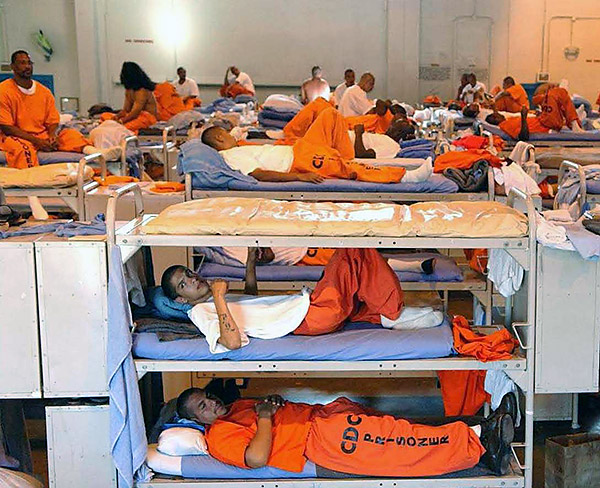
We are lawyers and their staff who try to help people facing inhumane, unfair, and unlawful treatment in California state prisons, Division of Juvenile Justice facilities, county jails, and juvenile halls. We also try to help people in Arizona state prisons and people on California parole. We do not work for or within the prison, parole, or jail systems.
We receive hundreds of requests for assistance or information every week. We review every request and try to respond as soon as we can. In most situations, an incarcerated person must try to resolve their concerns through an administrative grievance or appeal (for example, a CDCR 602, CDCR 602-HC or CDCR 1824 form) before we can consider providing assistance. The decision to assist with any particular case depends on the issue or problem presented, the chance of success, the amount of time and resources necessary to properly assist, and staff availability. Even if we cannot actively get involved in a person’s individual case, we have free self-help information about various criminal, prison, and parole law topics available on our “Resources” page and upon written request .
WE MAY BE ABLE TO HELP WITH ISSUES ABOUT:
- Medical care. We represent all people in California prisons with medical care issues in a federal civil rights class action lawsuit known as the Plata case.
- Mental health treatment. We represent all people in California prisons who have major mental illnesses under the class action lawsuit known as the Coleman case.
- Prison overcrowding reduction policies: We provide information regarding California’s prison overcrowding reduction efforts . This includes policies related to Proposition 57 (time credits, early parole consideration for people serving sentences for non-violent offenses), elder parole, medical parole, and youthful offender parole.
- Discrimination against people with disabilities. We represent all people in California prisons and on California parole with mobility, hearing, vision, kidney, learning , and developmental disabilities in class action lawsuits known as the Armstrong and Clark cases.
- Denial of parole to people serving indeterminate sentences of life with the possibility of parole.
- Race-based lockdowns. In the Mitchell case, we enforce a settlement agreement that prohibits the CDCR from using race-based modified programs or lockdowns and requires individualized threat assessments to decide which people will be put on a modified program or lockdown.
- Conditions of confinement in California county jails. We y investigate conditions of confinement for people in California county jails, and we have brought lawsuits against Fresno County, Riverside County, Santa Clara County, and San Bernardino County about including poor medical and mental health care and disability discrimination.
- Conditions of confinement in California county juvenile halls. We investigate conditions of confinement for people held in county juvenile halls in California, and we have brought lawsuits against Sacramento and San Joaquin regarding conditions in their juvenile halls.
- Health care and conditions of isolation in Arizona prisons. We represent all people in Arizona prisons regarding medical, dental, and mental health care in the Parsons federal civil rights class action lawsuit. The case also involves conditions of confinement in Special Management Units (SMUs).
WE CANNOT HELP WITH THE FOLLOWING MATTERS:
- Representation or referrals for criminal appeals.
- Representation or referrals for state or federal habeas corpus proceedings (except on rare occasions,).
- Representation or referrals for lawsuits for money damages.
- Representation or referrals for divorce, child custody, or child support cases.
- Individual legal advice.
- Providing print-outs of case law, statutes, or internet resources.
- Sending mail to third parties.
- Problems in the federal prison system or state prison systems other than California or Arizona.